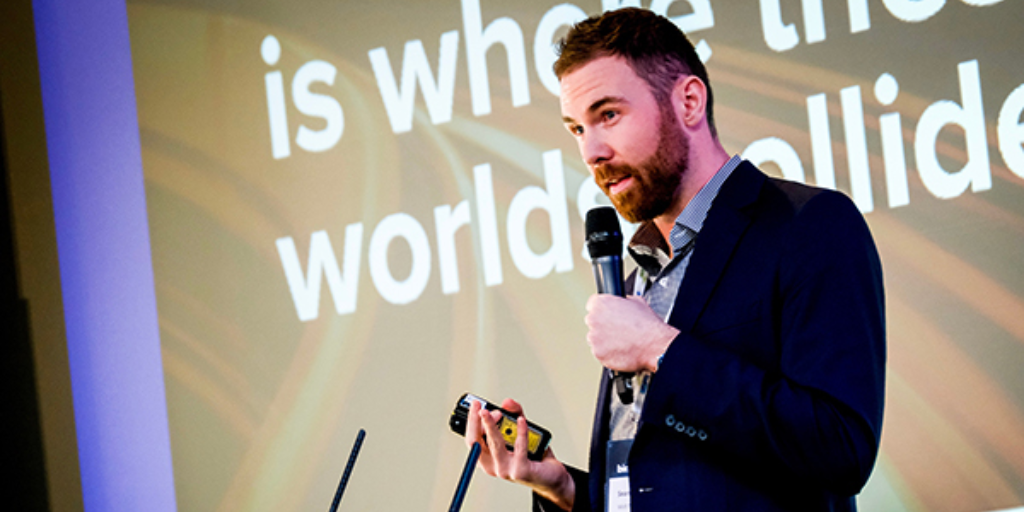
Submitted by Debra Royal on Fri, 13/09/2019 - 09:06
Mott MacDonald, led by its Smart Infrastructure business, was appointed by the Foreign & Commonwealth Office (FCO) as the Delivery Partner for the BIM Pathfinder Programme in January 2019. As part of our series of International blogs to mark CDBB Week 2019, Sean Kearney, Senior Information Consultant at Mott MacDonald, reflects on successful engagement and progress in partner countries.
As the Delivery Partner for the BIM Pathfinder Programme our role is to support and build upon the work undertaken by the Centre for Digital Built Britain’s (CDBB) International Development Programme. The BIM delivery methodology is under the Global Infrastructure Programme (GIP), which is funded via the Cross-Government Prosperity Fund. The £1.2bn Prosperity Fund was launched in 2015 by the UK government to address the UN Sustainable Development Goals, by removing barriers to economic growth.
BIM supports the efficient design, delivery and maintenance of infrastructure and buildings. There is a strong link between infrastructure development and increased prosperity, including supporting gender equality and inclusion. On this project assistance is provided to six partner countries; Colombia, Vietnam, Indonesia, Brazil, Mexico and Peru, to support the development of their National BIM Implementation Plans.
Partner country engagement
The CDBB International team had built strong relationships with key individuals in each country during the initial engagement stage of the project. This has helped greatly with our integration and participation, and we have gradually built upon and broadened those relationships during the year, through face-to-face and online interactions.
The level of engagement with the partner country teams has been very high, both for in-country workshops and when delegates have visited the UK. The individuals involved are proud, patriotic and highly motivated to make their countries construction industries more efficient. This has meant that workshops have been positive both in terms of gaining insights from the stakeholders and in agreeing next steps in their development of National BIM Implementation Plans.
Challenges and solutions
A reoccurring challenge is that private sectors and often academic institutions of our partner countries have a 3D modelling-centric view of BIM, meaning that they generally focus on the production of 3D models when training or discussing BIM. Through the programme they are coming to understand that process and managing models, documents and data are the vital elements of BIM and 3D models are just one part of the picture.
To overcome this challenge, we are working with countries to develop their Technical Frameworks for BIM, to document the BIM standards or guidance that should be followed. These frameworks cover core topics such as Information Management, secondary areas such as BIM Execution Planning and thirdly, highlight the available templates or supporting resources. Frameworks will be based on a combination of international standards, international best practice and local documentation.
The next challenge we are looking to address is making BIM and Information Requirements client-led and client specific in the partner countries. As with many countries around the world, public sector clients are not leading BIM at present and struggle to obtain the information that is key for their businesses. Capacity building for clients is currently being planned; workshops on this subject were held only last week in Vietnam (our furthest forward country) in Hanoi and Ho Chi Minh City. We look forward to developing this further and implementing plans to upskill the client teams.
In-country implementation
The partner countries are at different BIM adoption stages, and partner teams move at varying speeds dependent on political climate, industry readiness and resource factors. A key learning point is to make the delivery methods adaptable and flexible, to suit the requirements for each country, while maintaining a repeatable and consistent methodology.
The key to success is founding national improvement programmes with a robust governance structure and high levels of ownership and support. As such we have advised countries to create a Steering Committee and Technical BIM Working Group (if a robust governance is not in place already) and documented what each would contain. Leadership and drive must come from central government for the BIM strategy to be successful, therefore the Steering Committee is a body made of key public stakeholders.
The Working Groups can be a blend of public and private sector participants, across sectors of the industry who have influence or knowledge in BIM implementation. The Working Group are the ‘doers’, supported by a wider network of contributors from industry and academia.
Following creation of the Working Groups, we have guided these experts on how to come together to move the National BIM Implementation plan forward. This has been done via planning workshops and creating workstreams which cover the four strategic areas (as seen in the EU BIM Handbook) which are Public Leadership, Building a Collaborative Framework, Growing Industry Capacity and Communicating the Vision. Objectives have been determined for each workstream and activities required to meet these documented.
Shared trade opportunities
The secondary benefit of the Prosperity Fund is to increase UK trade opportunities with partner countries. The implementation of UK best practice methodologies and global standards such as ISO19650 facilitates a common, efficient and standardised way of working and in turn puts UK businesses in a great position to work collaboratively with the partner countries clients on future projects.
By showcasing state of the art projects, we are raising awareness of UK infrastructure capability and are opening opportunities for local FCO offices to form strategic partnerships that can build on the work we have done. This paves the way for other UK businesses to target work which complements local expertise or fills local skills gaps, building on the success of GIP’s work in the partner countries.
